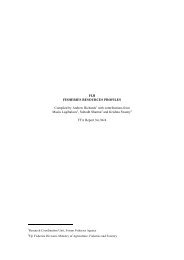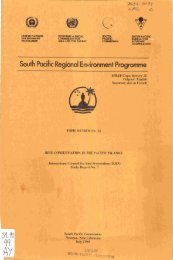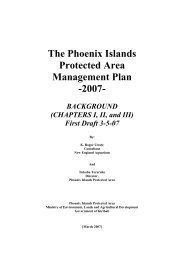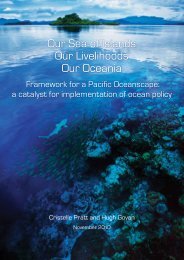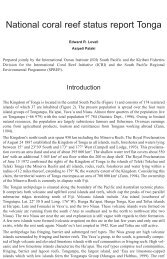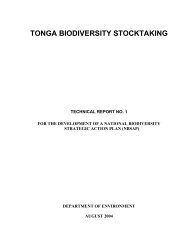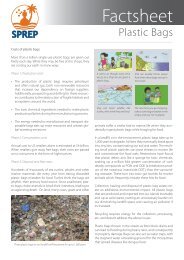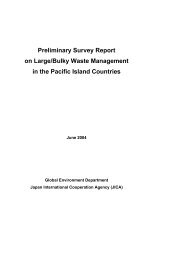KINGDOM OF TONGA - SPREP
KINGDOM OF TONGA - SPREP
KINGDOM OF TONGA - SPREP
You also want an ePaper? Increase the reach of your titles
YUMPU automatically turns print PDFs into web optimized ePapers that Google loves.
Strategic Development Plan 8 2006/07-2008/09<br />
• Facilitate private sector led growth by improving the legal and regulatory<br />
environment for local and foreign investment and by introducing and<br />
progressively implementing tax reform<br />
• Mitigate the economic and social impact of the reform program by<br />
improving the quality of socioeconomic data production and<br />
dissemination and by establishing an Economic and Social Impact<br />
Monitoring Unit in CPD.<br />
EPSRP Objective 1: Achieve Sustainable Fiscal Balance<br />
The legislative framework for achievement of the fiscal sustainability<br />
objective was provided by passage of the Public Finance Management Act 2002,<br />
which was promulgated in mid-2003 and provides for greater control by the<br />
Ministry of Finance over budget execution, though in 2005 there was still a need<br />
to develop supporting regulations. The share of wages and salaries in current<br />
expenditure was reduced from 52.4% in 1999/2000 to 47.1% in 2004/05 through<br />
abolition of some vacant positions and imposition of a general hiring freeze.<br />
Supportive technical improvements were made through a transition from line<br />
item to programme budgeting and the introduction of computerised accounting<br />
and payroll systems, with 10 of 28 Ministries and Departments connected to the<br />
Ministry of Finance’s automated accounting system by mid-2005. The backlog in<br />
preparing and presenting audited Public Accounts was overcome in 2005.<br />
On the revenue side of public financial management, a tax reform package<br />
intended to reduce reliance on trade taxes was approved in January 2002. The<br />
package consisted of: (i) introduction of a broad-based single-rate consumption tax<br />
(CT) for large businesses (annual turnover above $100,000); (ii) a simplified corporate<br />
income tax; (iii) a simplified personal income tax; (iv) a uniform customs duty rate;<br />
and (v) the repeal of tax incentives under the Industrial Development Incentives Act<br />
(IDIA) and their replacement by accelerated depreciation and investment<br />
allowances. The Revenue Services Administration Act 2002 provided the<br />
legislative framework for strengthening tax administration, several senior<br />
positions were filled and training provided with AusAID assistance. However,<br />
capacity constraints prevented the implementation of the full tax reform package<br />
as originally scheduled. Parliament ratified the CT in October 2003, and in April<br />
2005 a 15% CT was introduced in place of the domestic sales tax and the port and<br />
services tax. The Revenue Department had been restructured in late 2004; and in<br />
2005 tax and customs administration was strengthened through training and<br />
advisory support from AusAID and NZAID, creation of an anti-corruption task<br />
force and the extension of computerised systems. Drafts of the Customs Act and<br />
Regulations and the Income Tax Bill and Regulations were still to be passed.<br />
Looking to the Future, Building on the Past 6



